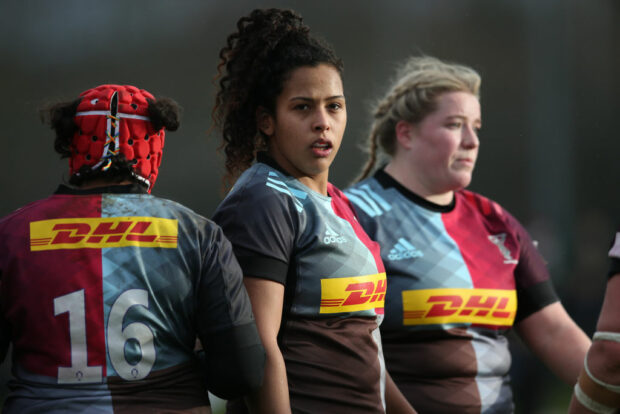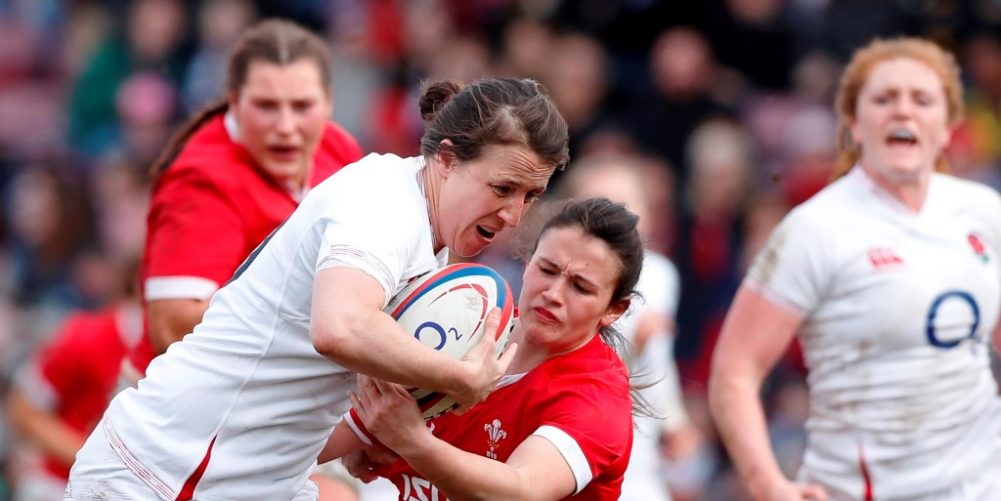For rugby purists who argue the case for ongoing promotion and relegation (I include myself) Exeter Chiefs have been our shining beacon of light. Their strong, steady, assured rise up the ranks has resulted in them being one of the most successful top flight rugby clubs over the last ten years.
Their success has been consistent and seemingly perfectly timed all while building a strong ethos, a loyal fan base and an accounts sheet to be fairly proud of. Alongside this their ability to recruit and retain players who fit perfectly like well-oiled cogs in to the larger machine has been key.
They are the only men's team to have won all of the top four league titles in English rugby taking National League 2 in 1996 and League 1 in 1997. They won the Championship in 2010 and became victors of the Premiership in 2017. If ever there was an example for ambitious clubs lower down in the leagues to aspire to, this is it. It is possible.
Their newly formed women's team, although a much-needed diamond in the deep south west, takes some shine away from the beacon. The women's team history? Established late in 2019. Premiership status confirmed 2020. Previous fixtures (according to their website) two. If ever there was an example for ambitious clubs lower down in the leagues to aspire to, this is most definitely not it.
With no rise up the ranks, no playing history, no foundations laid, as a rugby purist why do I find myself nodding in agreement with their inclusion? And Exeter aren't the only ‘oldie but goodie' to have secured a place for the next three-year cycle in the Tyrell's Premier 15's competition.
We are often mistaken for thinking that the shark was a solitary creature but this is not always the case. DMP Sharks (now DMP ‘Durham' Sharks, named so because of their new university partnership) may have to sharpen their teeth. And they will feel like it too. Their superstar has returned to her more natural northern habitat after being briefly stuck by Lightening in the midlands but it is the sparkle of new team Sale Sharks that have lured the majestic Katy Daley-McLean and not her former home. The offer of a player-coach role also helped to keep Daley-McLean from heading east across the Pennines.

I wonder how many player-coach appointments we will see? With an enforced player salary cap of £60k (to clarify that is per squad not per player) I am sure we will see more of these roles throughout the league. Clubs will need to be inventive in order to recruit and retain the best talent. I foresee another salary cap controversy brewing.
Sale are another team with no playing history, they have not been promoted from the lower leagues, they have not earnt their place the hard way. They have had to make a shiny presentation; they have had to sell themselves to assure the decision makers at HQ that they will be able to compete at the highest level for the next three years.
It is their ability to recruit enough quality players between now and the start of the league that will determine whether we see them basking harmlessly at the bottom of the table or surprising us all and disrupting the likes of Saracens and Harlequins.
Bristol may be the team that suffer the most from Exeter's inclusion with talented players from Cornwall and Devon now not needing to tread the well-worn path up and down the M5. And Gloucester-Hartpury players fancying a change may by-pass Bristol completely and follow their former coach, Susie Appleby, to Exeter. But competition should ultimately increase performance. Time will tell. Will this finally be the year when we see closer games more often? Will this be the season when Harlequins and Saracens are knocked off their pedestal?
Harlequins have just weakened their army by offering previous co-head coach Gary Street a full-time role in their men's academy set up. Street is a fantastic development coach and the role will suit him perfectly but I do feel a little sad that the move seems to be heralded as a step up. A promotion of sorts. I wonder how far away we are from congratulating a move from a men's academy set up to a women's Premier team coach as an ambitious and positive move on one's coaching career?
Giselle Mather worked with the London Irish men's academy set up for several years before returning to the women's game. I have no doubt that the infamous glass ceiling played its part here; not good for rugby as a whole but clearly good for the women's game and particularly Wasps who, under Mather's leadership, fought themselves out of the danger zone and retained their Premier status.
So, two teams in for the new three-year cycle means that an existing two have fallen foul of the process; in this case both Richmond and Waterloo are thrown to the side. And with the current disruption to the sporting calendar both teams played their last top flight games before their time and neither were able to get the send-off they perhaps deserved.
Richmond are quite possibly the most successful women's club ever. Running three teams for several years at a time when many clubs struggled to sustain just one. But times have changed. I wrote last year in this paper: “Richmond were one of the first men's teams to turn professional in 1996 but this turned sour and after re-establishing themselves they now, according to their website, strive to be the best community rugby club in the UK. They have licked their wounds; they have relatively successfully re-branded themselves. But community rugby and top flight women's rugby no longer equates.”
I argued that their self-declared community club status, forced upon them by administrative and financial troubles in years gone by, was not compatible with elite women's rugby. For years we wanted the game to ‘grow'; we have fought tooth and nail to see increased profile; we have battled for more funding in the game.
Richmond have been at the forefront of this development but in some cruel way this has now ultimately led to their demise. We have to say thank you. We have to applaud them; we have to hope that they will continue to fight for the game and along with Lichfield and Waterloo, ensure that the gulf between the Premier 15s clubs and the Championship does not become too wide.
This has to be the last time that money alone secures a place in the Premiership. Funding is important but so, too, are solid foundations. Exeter have proved this to us. Who will be the Exeter of the women's game in years to come?
CATHERINE SPENCER


























